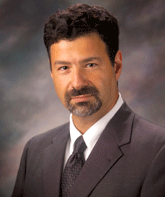Learning from Authoritative Security Experiment Results

Panel: How Did We Get Into This Mess, and How Will We Get Out?
Roy Maxion (professor at Carnegie Mellon University and co-PC chair of LASER) will moderate a panel with Sami Saydjari (CEO at Cyber Defense Agency) and Shing-hon Lau (graduate student at Carnegie Mellon University).

O. Sami Saydjari is an internationally recognized expert in strategic cyber security issues and a key innovator in the field. He is the founder and Chief Executive Officer of the Cyber Defense Agency, where he provides vision, leadership and expertise for building a Consulting and Research concern that creates effective systematic defenses for high-value systems against aggressive cyber-attack.
Mr. Saydjari has 25 years of experience performing and directing information assurance research, including 13 years at the National Security Agency and 3 years as a DARPA Program Manager of Information Assurance.
Mr. Saydjari was the Information Assurance Program Manager for DARPA’s Information Systems Office. He created and drove the security architecture and technology for a common reference architecture for DARPA and DISA’s advanced programs. His focus areas include high-assurance operating systems, network security, public-key infrastructures, and security architecture. Before his assignment at DARPA, Mr. Saydjari was the technical director of the Office of Network Security Infrastructure for the National Security Agency (NSA). In this role, Mr. Saydjari performed an advanced survivability architecture analysis of the MISSI system, including attack trees and fundamental review of required system architecture properties. At NSA, Mr. Saydjari was also the leader of several information assurance research teams in A1 INFOSEC systems design (LOCK), highly assured distributed operating systems design, and trustworthy network systems design.
Mr. Saydjari earned his M.S. in Computer Science from Purdue University. The Director of NSA named Mr. Saydjari an NSA fellow in 1993 and 1994. He has published more than a dozen technical papers in the field of information security and has presented the results of his research at both such as the National Cryptologic Quarterly, the National Computer Security Conference, IEEE Security and Privacy Conference, and the ACM New Security Paradigms Workshop.